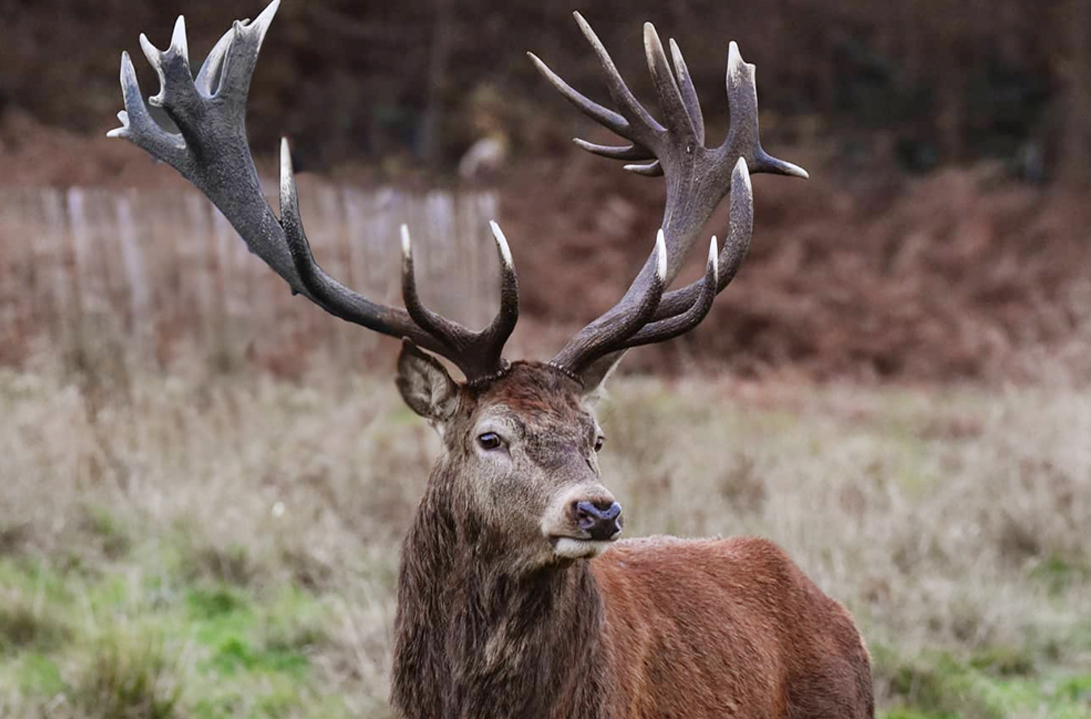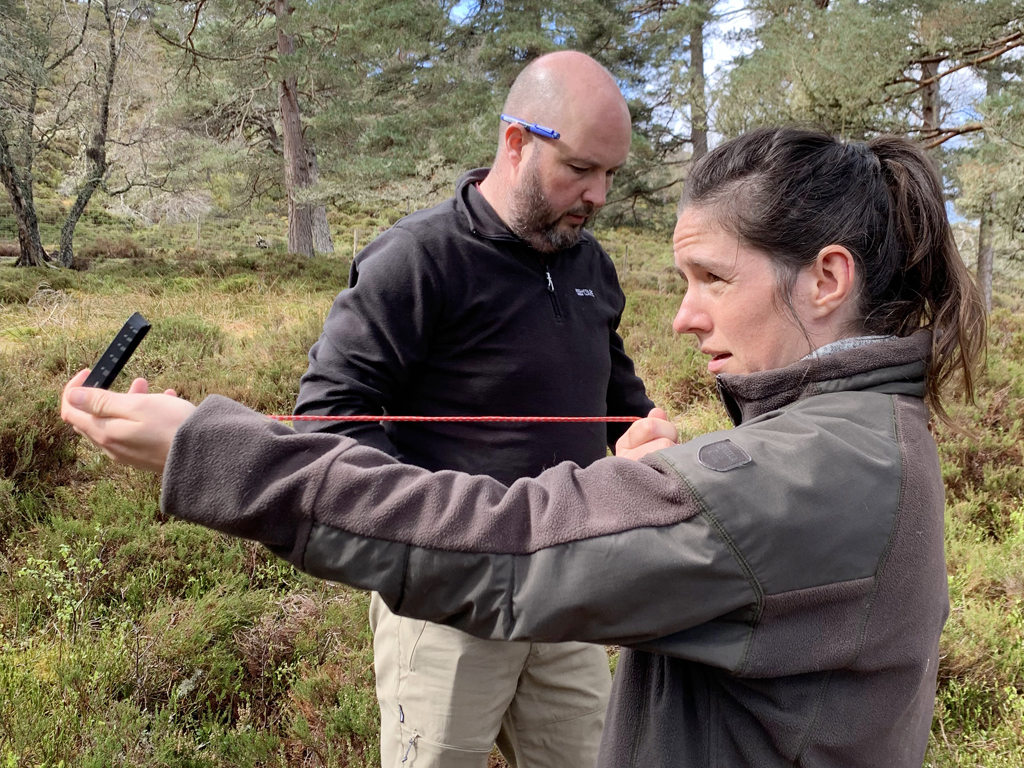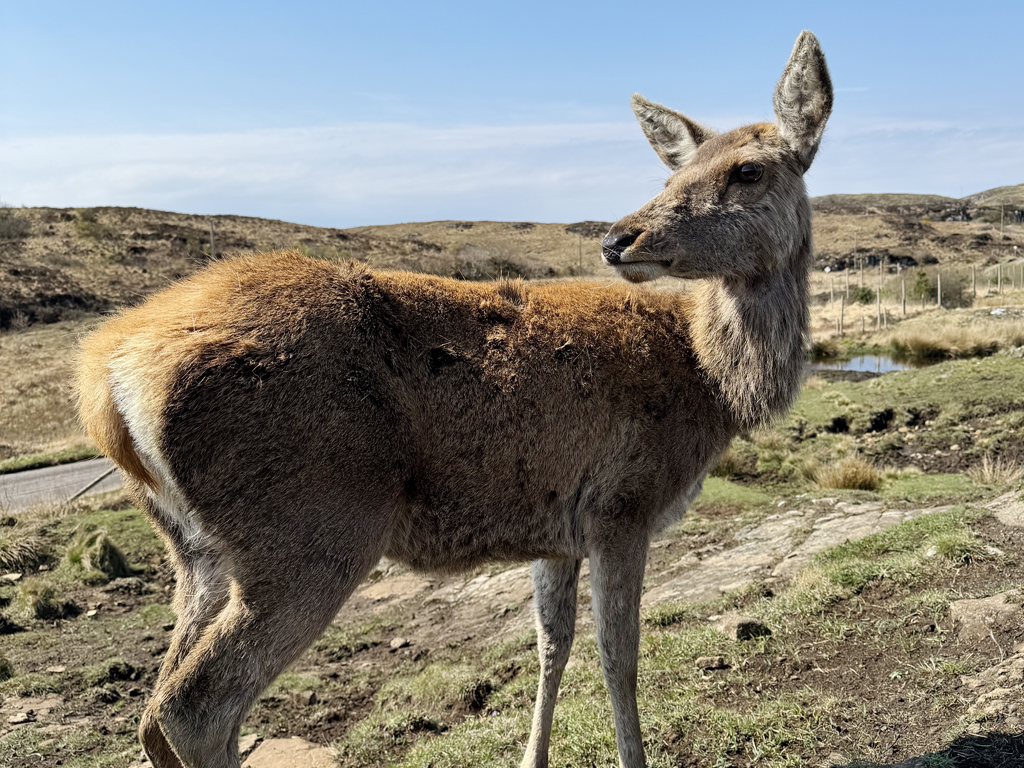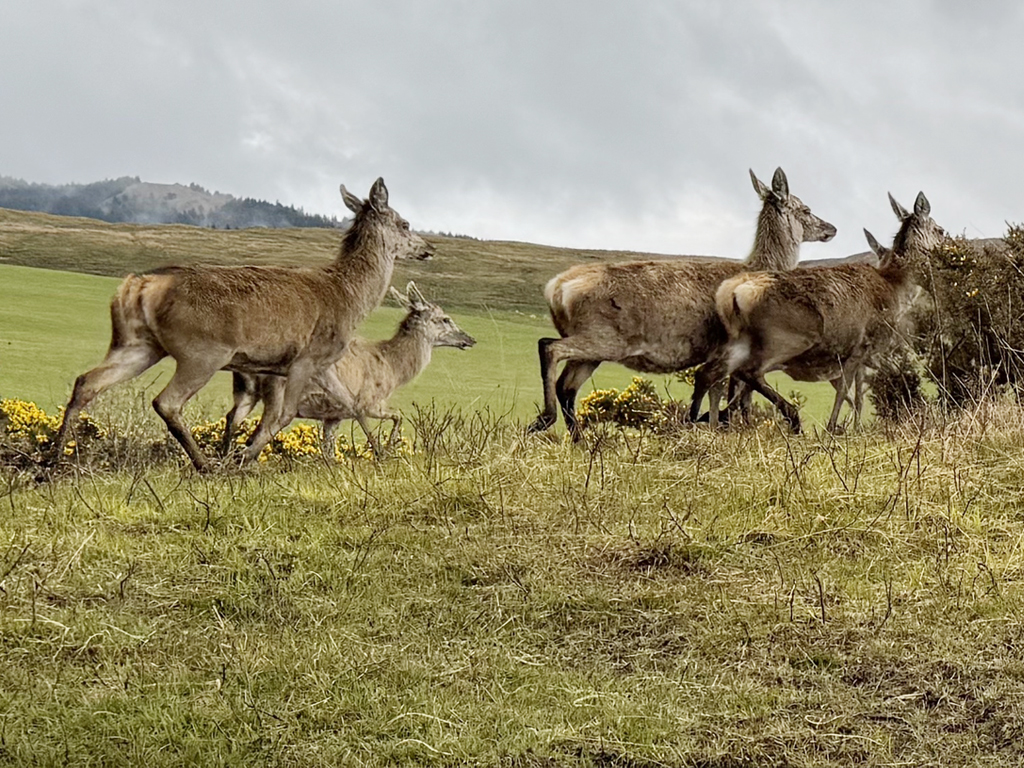Since 2021, WildCRU researchers have collaborated with conservation practitioners in Scotland to understand socio-political and ecological aspects of deer management in Scotland. We focus on native red deer (Cervus elaphus) and roe deer (Capreolus capreolus).
CONSERVATION CONTEXT
Large populations of native red deer and roe deer are associated with a range of negative impacts in Scotland. These include negative ecological impacts such as preventing forest regeneration and damaging peatlands, as well as socio-economic impacts such as consuming crops, causing road accidents, and spreading Lyme disease. As a result, high deer numbers inhibit progress towards delivering local, national, and international commitments for biodiversity and carbon. Current deer numbers are the result of long-run governance arrangements that have not effectively managed trade-offs between multiple competing societal interests. It is likely that forthcoming wildlife policy reforms will prioritise increased deer culling. However, while increased culling might reduce negative deer impacts, it could be very controversial. Understanding what members of the Scottish public think about the contentious possibility of increasing the deer cull can help inform policy decisions about how to manage deer populations sustainably.

Stag (Emily Madsen)

Hannah and Darragh setting up deer browse experiment in Scottish pinewood (Lorraine Hare)
APPROACH
We use quantitative methods to understand how people living in Scotland think about the possibility of increased deer culling. We co-produce research questions with non-academic practitioners working in environmental and animal welfare NGOs in Scotland to ensure that our work produces insights that are practically useful. We communicate findings in multiple formats to decision-makers in government agencies and NGOs facing difficult decisions about deer management.

Young red deer in Ardnamurchan (Darragh Hare)

Red deer herd in Ardnamurchan (Darragh Hare)
PROJECT MEMBERS
Darragh Hare coordinates this research. Jess Frater completed a master’s project on the topic, and Holly O’Donnell collaborates on data analysis and manuscript writing. Mike Daniels (University of the Highlands and Islands), Hannah Kirkland (Cornell University), and Bernd Blossey (Cornell University) are long-term collaborators.